The Democratic Republic of the Congo (DRC) could be facing an impending political crisis as its upcoming presidential election—scheduled for November 27—is increasingly called into question. President Joseph Kabila, who is set to complete his second term in office, has signaled his intention to extend his presidency beyond the constitutionally mandated term limits. Kabila’s efforts to delay or obstruct the scheduled election would reverse the political progress and stability that has occurred under his tenure and would likely usher in an all too familiar environment of violence and instability in the country.
On August 15, the Africa Security Initiative at Brookings hosted a discussion on the DRC’s political crisis featuring His Excellency François Nkuna Balumuene, ambassador of the Democratic Republic of the Congo to the United States; Anthony Gambino, former USAID mission director in Congo; and The Honorable Thomas Perriello, special envoy for the Great Lakes Region of Africa at the U.S. Department of State. Michael O’Hanlon, director of research in Foreign Policy at Brookings, moderated the conversation.
O’Hanlon began by emphasizing the DRC’s strategic importance to the stability of central and sub-Saharan Africa. He noted that the country has a population of nearly 80 million people, making it the 4th most populous country on the continent; that it consists of the second largest landmass in Africa; and that it borders nine independent states. These factors clearly illustrate the regional significance of the DRC’s political future and the transnational consequences that could result from future violent conflict.
Gambino stressed that the window for avoiding a full-fledged constitutional crisis is narrowing, and that Kabila’s ongoing obstructive tactics to delay the election are only accelerating such an outcome. Efforts to extend his presidency have included the increasing intimidation and silencing of civil society organizations and activists, questionable legal actions against opposition candidates, and advocating for the overhaul of the country’s voting list which could delay the election by up to a year. Despite such political uncertainty, Gambino stressed the opposition’s commitment to nonviolence. While its restraint is commendable, he added, it is unlikely that such peaceful efforts can or will be indefinitely pursued.
Perriello stated unambiguously that the U.S. position on the political situation in the DRC is firmly in line with the country’s constitution, and thus stressed the importance of an on-time election. In addition to the political environment, he noted the economic pressures that are building in the country—inflation and budgetary restraints will ultimately only be properly addressed by a functioning and accountable government. Perriello concluded by stating that the international community and the United States are limited in influencing the situation, and that a political solution can only be developed and implemented by the Congolese people.
Balumuene offered a perspective from the Congolese government and presented several primary explanations for why the November vote might be delayed. Firstly, he noted that unlike the successful presidential election in 2006 (which received external assistance), this November’s election has not yet received the same levels of external support. This will likely result in a waiting period in order to acquire the additional necessary funds. Secondly, Balumuene pointed to budgetary issues resulting from a recent economic downturn, coupled with the violent conflict in the east of the country against the March 23 Movement. These realities have made it difficult to gather sufficient funds to properly prepare for the election. Additionally, he noted that the Independent National Electoral Commission faces the daunting task of registering 42 million Congolese citizens to vote, which will take time to complete. In conclusion, Balumuene offered two potential routes for the Congolese people this fall: an extension, not renewal, of Kabila’s term until these issues are resolved and an election can take place; or the immediate facilitation of a dialogue between the president and the opposition in order to prepare a path for a future electoral process. Despite the potential delay of the election, Balumuene explicitly stated that President Kabila “will not claim a third term nor will he stay in office.”
Panelists differed as to the proper and constitutionally mandated processes that should guide President Kabila’s behavior in addressing the increasingly tense political situation. But they agreed that efforts must be made to build confidence and trust between the government and the opposition. In addition to the pressing political issues, the panelists all mentioned the importance of addressing the DRC’s various economic obstacles that have largely resulted from exogenous factors such as low commodity prices.
In sum, the discussion highlighted lots of challenges, many of which need immediate solutions so that the political process can move forward. And while a constitutional crisis might be looming on the Congo’s horizon, it is not too late to avert a largely preventable disaster.
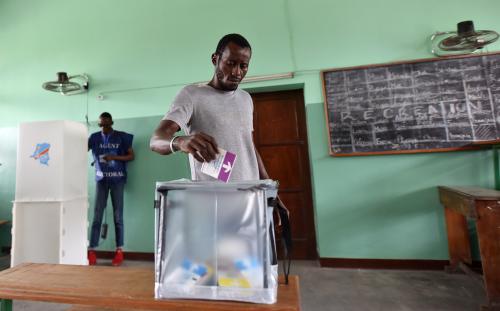
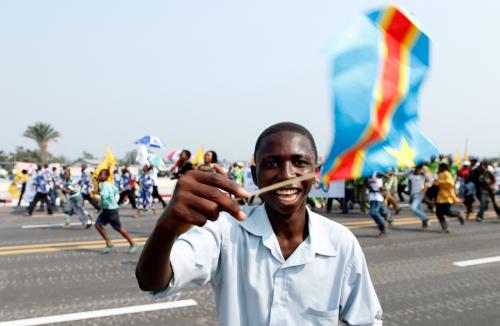
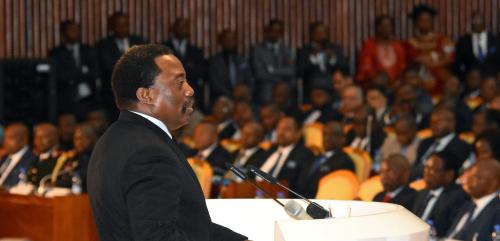
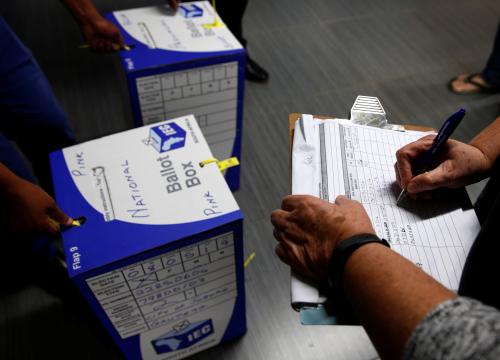
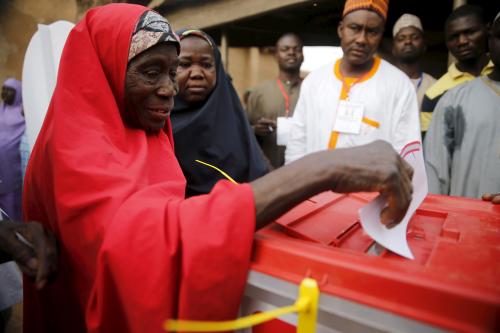
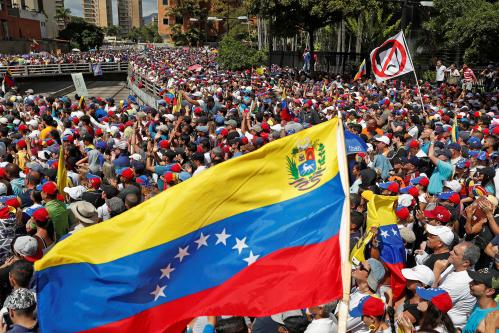
Commentary
What can be done to avert the impending constitutional crisis in the Congo?
August 18, 2016